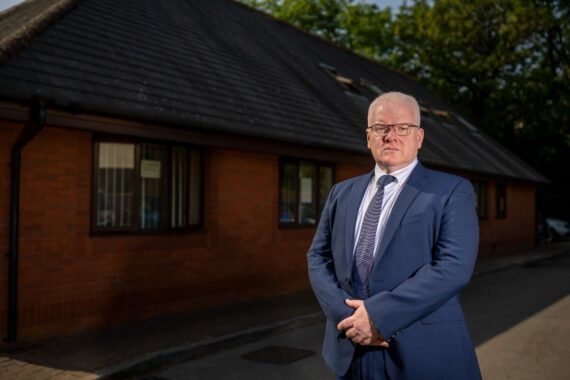Welsh GPs are ‘actively evaluating all available options’ for dispute against the Government following delays to contract negotiations.
BMA Wales’ GP committee chair Dr Gareth Oelmann said contract discussions with ministers for the 2024/25 contract have yet to start due to ‘continued delay’ from the Government.
Yesterday, he wrote to Welsh First Minister Vaughan Gething, informing him delays are ‘exacerbating’ negative feelings among GPs about the future of general practice in Wales.
He said he has been ‘inundated’ with questions from GPs asking if a dispute is needed ‘to achieve progress’ and mentioned ‘the situation across the border’ where GPC England is currently balloting members for collective action.
Dr Oelmann said: ‘It would be no surprise that we are actively evaluating all available options in the event of a dispute arising.’
He added that the ‘crucial’ contract talks cannot begin as the cabinet secretary has not yet signed the joined negotiations mandate that GPC Wales has agreed with civil servants and NHS Wales, and that the delay, due to ‘budgetary uncertainty’, is ‘unacceptable’.
Contract negotiations for 2023/24 were also delayed and ended without agreement in February, as practices received a 4.4% funding uplift backdated to April 2023, which the GPC said was ‘sub-inflationary’ and ‘inadequate’.
GPC Wales was then given a mandate to ‘urgently consider’ industrial action across general practice, as the Welsh LMCs conference passed a motion which ‘deplored the failure of the Welsh Government’ to negotiate a contract for 2023/24.
Dr Oelmann said: ‘We are clear that this cannot happen again, given the uncertainties this created for GPs and their staff across Wales.
‘For this reason, I have made this an open letter so that the profession is kept fully informed of developments.
‘I ask you to consider these concerns urgently as without prompt action the patience of the membership, and viability of GMS in NHS Wales, are finite.’
The Welsh LMCs conference also passed a motion asking the GPC to explore ‘what GP practices might consider stopping doing’ in order to remain viable.
On future GMS contracts, local GP leaders called for expenses to be ‘funded 100%’ and for allowances to cover national and minimum wage increases.
Last summer, GPC Wales launched its Save Our Surgeries campaign which called for an ‘urgent rescue package’ from the Welsh Government to save general practice from collapsing, and a BMA petition calling for the rescue package received over 21,500 signatures.
Dr Oelmann added: ‘The plight of general practice in Wales has been set out clearly in our campaign. Yet many GPs have interpreted these recent developments as symptomatic of the Welsh Government’s continued underinvestment in general medical services and its workforce. The direct impact upon the GP profession is palpable and needs to be addressed.’
Pulse October survey
Take our July 2025 survey to potentially win £1.000 worth of tokens













